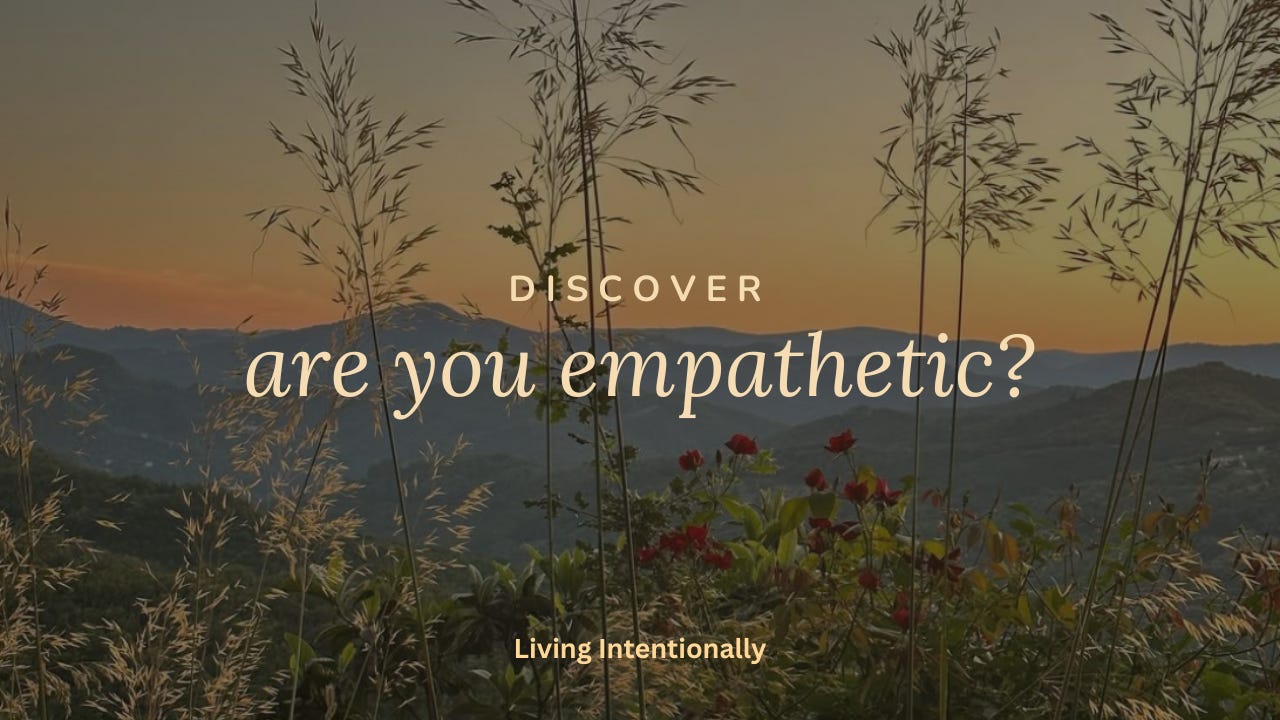Empathy is emotionally connecting with another person’s experience. It is putting your thoughts, feelings, interpretations and judgements aside, and accepting the other person’s experience as their truth. It is listening fully and seeking to understand, in order to share another person’s feelings.
Sympathy is like empathy’s well-meaning-but-distracted sibling. It lacks the mutual emotional vulnerability, creating a power imbalance. Sympathy is feeling sorry for someone, not feeling with them.
Both sympathy and empathy are well-intentioned, but empathy is much more intentional. It is active and hard to do. It requires full engagement and the sole pursuit of allowing someone to vocalise their experience, as they see it. Practicing empathy is surprisingly challenging.
Here’s an example…
Your kind and sensitive friend, Emma, tells you she’s lost her job. She’s tearful and wants to get out of the house, so you suggest meeting for a tea and taking a walk together as it’s a sunny day. As you slowly amble through the park, placing one foot in front of the other, Emma explains that her manager told her yesterday they’re not renewing her contract at work. This has come out of the blue for her, and she doesn’t have a lot of time before she finishes. She feels worried and stressed about money and future job prospects.
What might you say to Emma?
Have you checked your contract? Are they allowed to do that? What’s your notice period?
But I thought you said it was going really well there. They love you!
It must be because of that meeting you said went badly the other week; you knew something was up, you were right.
What are you going to do? Have you found anything else yet?
It sounds like a really tough situation, particularly as it’s so unexpected.
You feel blind-sided by this sudden change in circumstances and are now feeling worried about your future.
How you’re feeling is completely understandable; it’s been a big shock.
… this isn’t a case of right and wrong, so I won’t be offering an ‘answer’.
You might have a strong urge to protect Emma. You might feel compelled to be the person who makes her feel better. You might feel like you need to do something to improve her situation, maybe even solve it for her. Take the discomfort away. This is a natural reaction, and sometimes it’s gratefully received.
On the other hand, offering practical solutions or blue-sky-thinking might be wide of the mark. Emma knows what she needs to do, she’s feeling the pressure so much you can see a warm pink rash spread across her neck and chest. Beware of attempting to fix. Sometimes people just need to feel heard, and held. They don’t need someone to swoop in and save the day.
How do you know what support to offer when someone you love is going through a tough time?
Ask them. Allow them space to speak and simply listen. Offer them time to air their thoughts and concerns. Take pause. Then ask them this fantastic question: do you need comfort, or solutions?
You’ll see for yourself…
I have grown more and more aware of how much effort it takes to truly empathise with someone. It’s a lot. But when I reflect on how I have felt when someone has offered me empathy – how I could feel physical pressure drain from my body, my brow relaxing, my shoulders dropping – I know how valuable it can be, and that it is so worth the effort.





I would definitely say that I'm an empathy. I feel deeply. Amazing article! Thank you for sharing with us. 😊
I've gone from empathy to sympathy now. I feel less burdened.